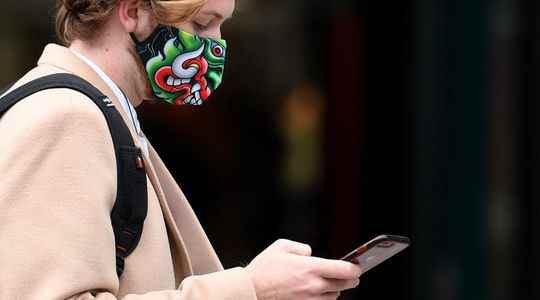The end of incompatible chargers that can’t be disentangled and cluttering drawers is getting closer. According to the agreement reached on Tuesday June 7 between the Member States and the European deputies, the European Union (EU) will impose from 2024 a universal wired charger for smartphones, tablets, consoles and digital cameras, to the chagrin of Apple who opposed it.
By autumn 2024, a series of cable-rechargeable devices – mobile phones, tablets, e-readers, headphones, digital cameras, portable video game consoles, portable speakers… – will have to be equipped with a port USB-C to be sold in the EU, regardless of manufacturer. Laptops will be subject to the same single charger requirement by spring 2026. The political agreement reached on Tuesday, after lengthy negotiations, will be formally approved after summer 2022 by the European Parliament and the Council, a body representing the states.
Savings for users and the planet
The text also paves the way for future standardization of wireless charging technologies, which are currently in full swing. “Consumers will no longer need a different charging device and cable each time they buy a new device, they will be able to use one charger for all their small and medium-sized electronic devices,” eliminating unnecessary accessories, says Parliament.
The text provides that the charging speed be harmonized for devices authorizing fast charging, in order to prevent it from being restricted when using a charger of a different brand. Labeling will be improved to better inform consumers, who will be able to buy a device with or without a charger.
This regulation could save European consumers – who spend 2.4 billion euros a year on purchases of chargers alone – at least 250 million euros annually, according to the European Commission. Waste from unused magazines, estimated at 11,000 tons per year, could be reduced by almost 1,000 tons.
Apple lobbying
This project was launched in 2009 by the Commission, but it had long come up against resistance from the industry. For thirteen years, the European Union failed to impose this legislation in the face of the reluctance of the Californian firm founded by Steve Jobs. And as the Swiss daily points out TimeApple would have already planned to opt for a standard charger from 2023 anyway, according to analyst Ming-Chi Kuo, quoted by the agency Bloomberg.
The Apple brand has indeed put a lot of energy into lobbying in order to keep its particular chargers that no other manufacturer offers on its devices. “The Californian multinational has always refused any regulation in the field of chargers, preferring to switch, without constraint, from the 30-pin connector to the Lightning connector, introduced in 2012″, specifies the Swiss daily.
To assert its opposition, Apple has long estimated that the European text will “stifle innovation”, and will cut off the EU – subject to a choice of “obsolete” standards – from the rest of the world. By disqualifying some of the chargers and smartphones in circulation, Brussels “will impose significant losses on manufacturers, reduce consumer choice and generate additional electronic waste”, Apple insisted on Tuesday. The losses will also concern the firm itself, which has been able to generate hundreds of millions of dollars through the sale of its own charging cables.
However, the number of types of existing chargers has been greatly reduced over the years. From around thirty in 2009, they have gone to three: the Micro USB connector which has long been fitted to the majority of telephones, USB-C, a more recent connection, and Apple’s Lightning charging technology. “Let’s say it clearly: if Apple wants to market its products (in Europe), we will have to respect our rules (…) We have to think about the environment”, replied the Commissioner for the Internal Market, Thierry Breton.
The wireless technology involved
“While charging systems confined consumers to a brand and forced us to accumulate cables at the cost of our wallets and natural resources, this is a stopping point for the most recalcitrant”, abounds the environmentalist MEP David Corband. His counterpart Geoffroy Didier (EPP, right) salutes the “voluntarism” of the EU in the face of “indecent waste dictated by the commercial interests of a few industrial groups”.
The association ANEC, which defends the rights of consumers on issues related to technological standards, welcomed “an agreement” which “simplifies the jungle of options hitherto inflicted on consumers”. ANEC had deplored that the initial project did not concern wireless charging systems, but the final agreement includes provisions for determining a common standard in this niche, which is about to become the majority in the next few years.
The adopted text “prepares the future (…) so as not to adopt legislation on a technology that is already disappearing”, assured MEP Alex Agius Saliba (S&D, Social Democrats), rapporteur for the text. . Thus, as wireless technology spreads, the Commission will thus be empowered to draw up “delegated acts on the interoperability of charging solutions”, i.e. regulations which can be applied directly without being subject to to a vote in the Council or the European Parliament.
